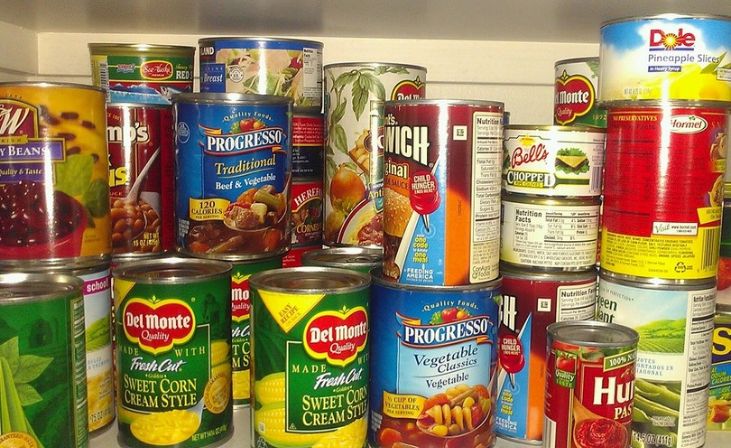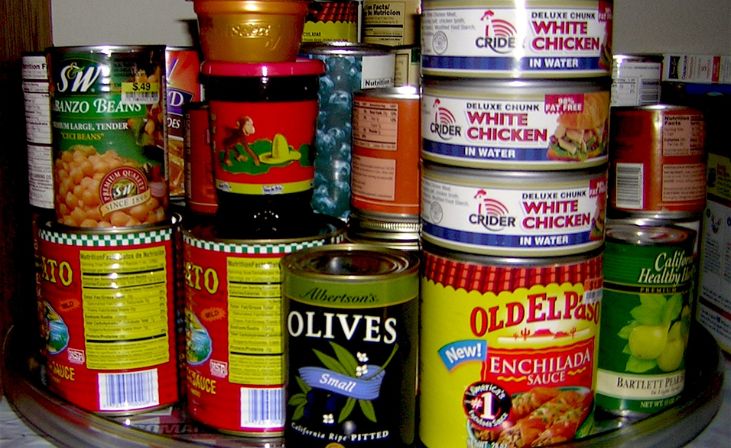Maintaining healthy blood sugar levels is crucial for overall wellness, especially for those managing diabetes or pre-diabetes. One of the simplest and most budget-friendly ways to incorporate blood sugar-friendly foods into your diet is by opting for canned foods. These options are not only affordable but also convenient and packed with essential nutrients. Below, we explore seven low-cost canned foods that can help regulate and stabilize your blood sugar levels.
- Canned Beans: A Protein-Packed Powerhouse
- Canned Lentils: Nutrient-Dense and Satiating
- Canned Tomatoes: A Versatile and Nutritious Choice
- Canned Tuna: High-Protein and Omega-3 Rich
- Canned Pumpkin: Low-Calorie and Nutrient-Rich
- Canned Spinach: A Low-Carb, Nutrient-Packed Option
- Canned Salmon: Heart-Healthy and Blood Sugar Friendly
- Incorporating Canned Foods into Your Diet
- Frequently Asked Questions
Canned Beans: A Protein-Packed Powerhouse
Canned beans, such as black beans, kidney beans, and chickpeas, are an excellent choice for those looking to maintain healthy blood sugar levels. Rich in fiber and protein, beans slow down the digestion process, which helps prevent blood sugar spikes. Fiber is particularly beneficial as it improves insulin sensitivity and promotes a feeling of fullness, reducing the likelihood of overeating.

Nutritional Benefits of Canned Beans
- Fiber: Beans are incredibly high in dietary fiber, with one cup of cooked black beans containing around 15 grams.
- Protein: They also offer a significant amount of protein, with one cup providing approximately 15 grams.
- Low Glycemic Index: Beans have a low glycemic index, meaning they have a minimal impact on blood sugar levels.
Canned Lentils: Nutrient-Dense and Satiating
Lentils are another fantastic canned option for blood sugar management. They are packed with essential nutrients and are especially high in soluble fiber, which helps to regulate blood sugar levels by slowing glucose absorption. Additionally, lentils are a good source of plant-based protein, making them a great meat substitute for vegetarians and vegans.
Also Read – Unveiling the Culinary Masterpiece: The Best Ever Salad
Nutritional Benefits of Canned Lentils
- High Fiber Content: One cup of cooked lentils contains about 15.6 grams of fiber.
- Protein: Lentils provide around 18 grams of protein per cup.
- Complex Carbohydrates: Lentils consist mainly of complex carbohydrates, which release energy slowly and prevent sudden spikes in blood sugar.
Canned Tomatoes: A Versatile and Nutritious Choice
Canned tomatoes are not only versatile but also highly nutritious. They are low in carbohydrates and calories, making them a suitable option for those monitoring their blood sugar levels. Tomatoes are also rich in antioxidants like lycopene, which has been shown to improve insulin sensitivity and reduce inflammation.
Nutritional Benefits of Canned Tomatoes
- Low Caloric Content: One cup of canned tomatoes contains approximately 41 calories.
- Vitamins and Minerals: Tomatoes are an excellent source of vitamins A and C, potassium, and folate.
- Antioxidants: The high lycopene content in tomatoes helps in reducing oxidative stress and inflammation.
Canned Tuna: High-Protein and Omega-3 Rich
Canned tuna is a great source of lean protein and omega-3 fatty acids, both of which are beneficial for blood sugar control. Protein helps in slowing down the absorption of sugar into the bloodstream, while omega-3 fatty acids have been shown to improve insulin sensitivity and reduce inflammation.
Nutritional Benefits of Canned Tuna
- Protein: A 3-ounce serving of canned tuna provides about 20 grams of protein.
- Omega-3 Fatty Acids: Tuna is rich in omega-3s, which have numerous health benefits, including improved heart health and reduced inflammation.
- Low Carbohydrates: Tuna contains negligible carbohydrates, making it ideal for blood sugar management.
Canned Pumpkin: Low-Calorie and Nutrient-Rich
Canned pumpkin is a low-calorie, nutrient-dense food that can help maintain healthy blood sugar levels. It is high in fiber, which aids in controlling blood sugar spikes, and is also packed with vitamins and minerals that support overall health.
Nutritional Benefits of Canned Pumpkin
- Fiber: One cup of canned pumpkin contains about 7 grams of fiber.
- Vitamins and Minerals: Pumpkin is a great source of vitamin A, vitamin C, potassium, and iron.
- Low Caloric Content: One cup of canned pumpkin has around 83 calories, making it a low-calorie option.
Canned Spinach: A Low-Carb, Nutrient-Packed Option
Canned spinach is a low-carb, nutrient-packed food that can help regulate blood sugar levels. It is rich in fiber, vitamins, and minerals, and has a low glycemic index, which means it has a minimal impact on blood sugar levels.
Nutritional Benefits of Canned Spinach
- Fiber: One cup of canned spinach contains about 4 grams of fiber.
- Vitamins and Minerals: Spinach is an excellent source of vitamins A, C, and K, as well as folate and iron.
- Low Carbohydrates: Spinach is very low in carbohydrates, with one cup containing only 6 grams.
Canned Salmon: Heart-Healthy and Blood Sugar Friendly
Canned salmon is another excellent source of lean protein and omega-3 fatty acids. These nutrients are crucial for maintaining stable blood sugar levels and promoting heart health. Salmon is also rich in vitamins and minerals that support overall health and well-being.

Nutritional Benefits of Canned Salmon
- Protein: A 3-ounce serving of canned salmon provides about 22 grams of protein.
- Omega-3 Fatty Acids: Salmon is abundant in omega-3s, which help in improving insulin sensitivity.
- Vitamins and Minerals: Salmon is a good source of vitamin D, B vitamins, selenium, and potassium.
Also Read – The Ultimate Guide to Making Perfect Sticky Buns
Incorporating Canned Foods into Your Diet
Incorporating these canned foods into your diet is straightforward and convenient. Here are a few tips to maximize their benefits:
- Opt for Low-Sodium Varieties: Many canned foods come with added salt. Choose low-sodium or no-salt-added options to reduce your sodium intake.
- Rinse Before Use: For canned beans and vegetables, rinsing them under water can help reduce the sodium content even further.
- Combine with Fresh Ingredients: Enhance the nutritional value of your meals by combining canned foods with fresh vegetables, whole grains, and lean proteins.
By including these low-cost, nutrient-rich canned foods in your diet, you can effectively manage your blood sugar levels while enjoying a variety of delicious and convenient meals. Remember to always read labels and choose products that align with your dietary needs.
Frequently Asked Questions
Are canned foods as nutritious as fresh foods?
Yes, canned foods can be just as nutritious as fresh foods. The canning process preserves most of the vitamins and minerals found in fresh produce, and sometimes even increases the availability of certain nutrients. For example, the lycopene in canned tomatoes is more bioavailable than in fresh tomatoes. However, it’s important to choose canned foods with no added salt or sugar to ensure you’re getting the healthiest option.
Can canned foods help in weight management?
Absolutely. Canned foods, such as beans, lentils, and vegetables, are high in fiber and protein, which promote feelings of fullness and help control appetite. These nutrients can support weight management by preventing overeating and stabilizing blood sugar levels. Including a variety of canned foods in a balanced diet can be an effective strategy for maintaining a healthy weight.
How should I store canned foods to maintain their quality?
Store canned foods in a cool, dry place away from direct sunlight. Extreme temperatures can affect the quality of the food. Once opened, transfer the contents into a glass or plastic container and refrigerate. Most canned foods can be stored for up to five years if unopened, but it’s always best to check the expiration date on the can for specific guidelines.
4. Are there any canned foods I should avoid for blood sugar management?
When managing blood sugar levels, it’s important to avoid canned foods that are high in added sugars and sodium. This includes some canned fruits in syrup, sugary baked beans, and certain canned soups and sauces. Always read the nutrition labels and choose options labeled “no added sugar” or “low sodium” to ensure you’re making the healthiest choice for blood sugar control.


